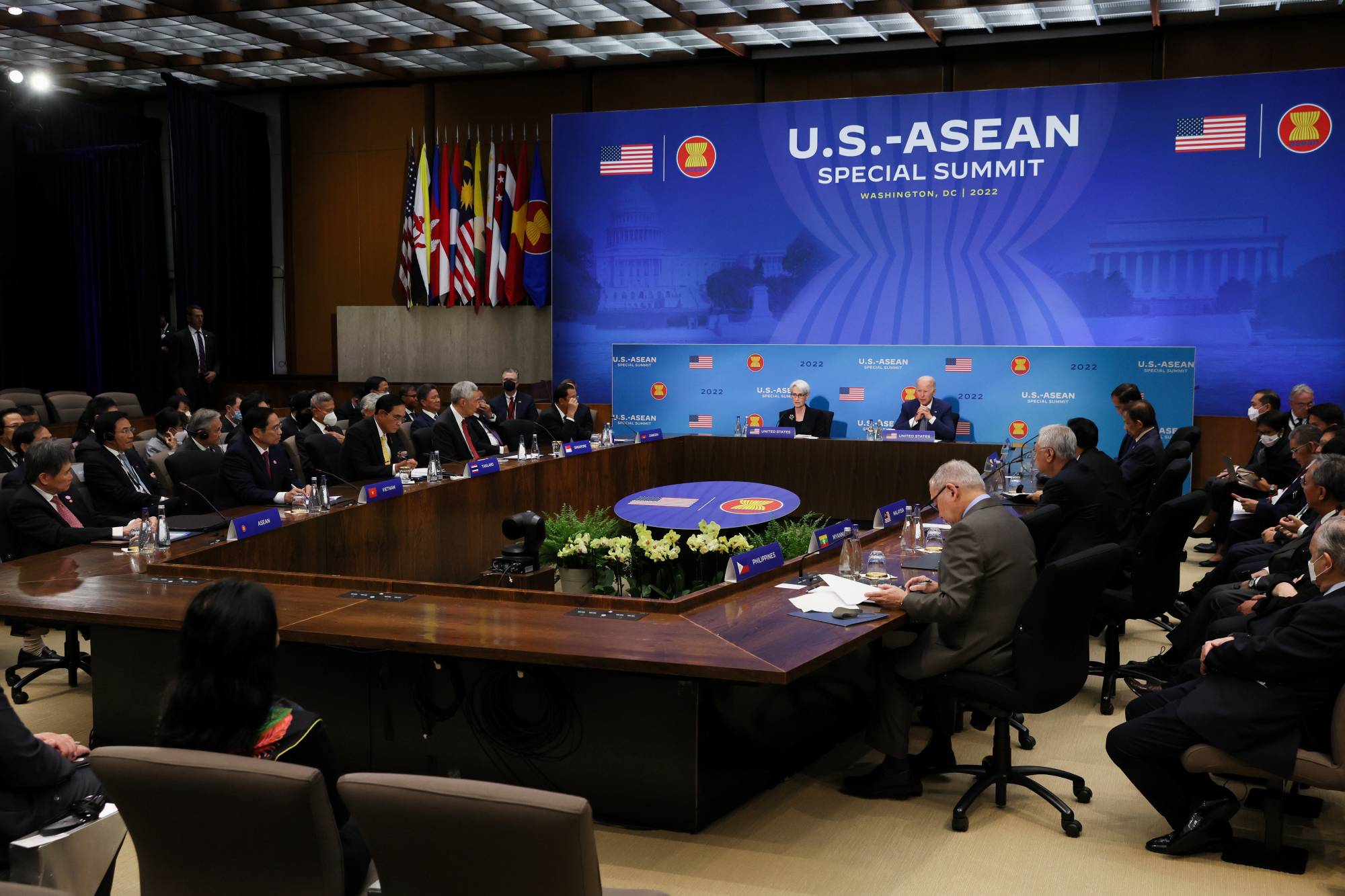My recent trip to Southeast Asia during the first half of August was revelatory — and frustrating.
The visit by Nancy Pelosi, speaker of the U.S. House of Representatives, to Taiwan drove tensions in the Taiwan Strait to new highs and U.S.-China relations to new lows. Military exercises were taking place across the region; most had been scheduled well in advance, but there were improvisations triggered by the Pelosi trip. A new government was finding its feet in Manila, while the Kishida administration was taking a higher profile in regional security affairs.
Against this backdrop, the message from Southeast Asian experts and officials was unequivocal, albeit a little convoluted. The United States should be more consistently and deeply engaged in regional affairs, but it should do nothing to exacerbate tensions. (There was near unanimous condemnation of the Pelosi visit.) Washington should continue to provide security for the region but regional governments are reluctant to be seen as participating in those efforts. That line is difficult to walk in the best of times — and may be unsustainable, regardless of U.S. discipline and creativity.
















With your current subscription plan you can comment on stories. However, before writing your first comment, please create a display name in the Profile section of your subscriber account page.